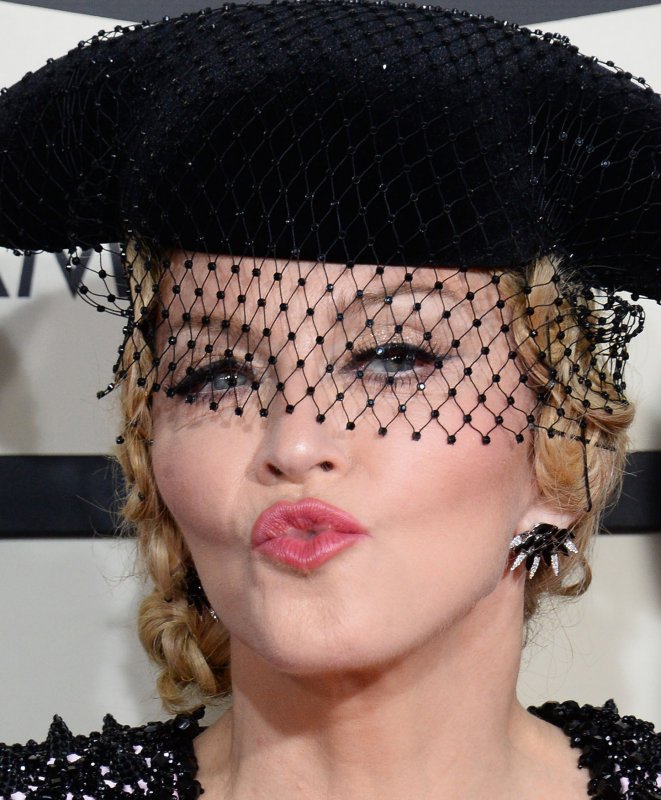1 of 4 | Madonna's "Vogue" broke no copyright law, even though it contained a snippet of another artist's song, a U.S. court has ruled. File Photo by Jim Ruymen/UPI |
License Photo
HOLLYWOOD, June 3 (UPI) -- Madonna's song Vogue broke no copyright law, despite containing a snippet of another artist's song, a U.S. Court ruled.
The case involved a horn "hit" allegedly lifted from the Salsoul Orchestra track Love Break. The U.S. 9th Circuit Court of Appeals said the sample lasted less than a second, and is not recognizable to the general public," the BBC reported.
"Without careful attention, the horn hits are easy to miss," it said.
Shep Pettibone produced both Vogue and Love Break. The one-note horn sequence lasts just 0.23 seconds, the court heard.
"After listening to the audio recordings submitted by the parties, we conclude that a reasonable juror could not conclude that an average audience would recognize the appropriation of the horn hit," 9th Circuit Judge Susan Graber wrote in Thursday's opinion. "That common-sense conclusion is borne out by dry analysis. The horn hit is very short — less than a second. The horn hit occurs only a few times in 'Vogue.' Without careful attention, the horn hits are easy to miss. Moreover, the horn hits in 'Vogue' do not sound identical to the horn hits from 'Love Break' ... Even if one grants the dubious proposition that a listener recognized some similarities between the horn hits in the two songs, it is hard to imagine that he or she would conclude that sampling had occurred."
The latest decision puts the 9th Circuit (California, Arizona, Washington) in direct conflict with the 6th Circuit (Kentucky, Michigan, Ohio, Tennessee) on the issue of whether it is permissible under the law to take even the smallest amount without permission, the Hollywood Reporter stated. A case brought in 2006 involving a N.W.A. rap song that sampled a Funkadelic riff (Bridgeport Music v. Dimension Films), prompted a 6th Circuit judge to write, "Get a license or do not sample. We do not see this as stifling creativity in any significant way."
VMG Salsoul, which owns the copyright to Love Break, argued on appeal that the 9th Circuit should follow the Bridgeport decision and hold that the de minimis exception does not apply to infringements of copyrighted sound recordings.














